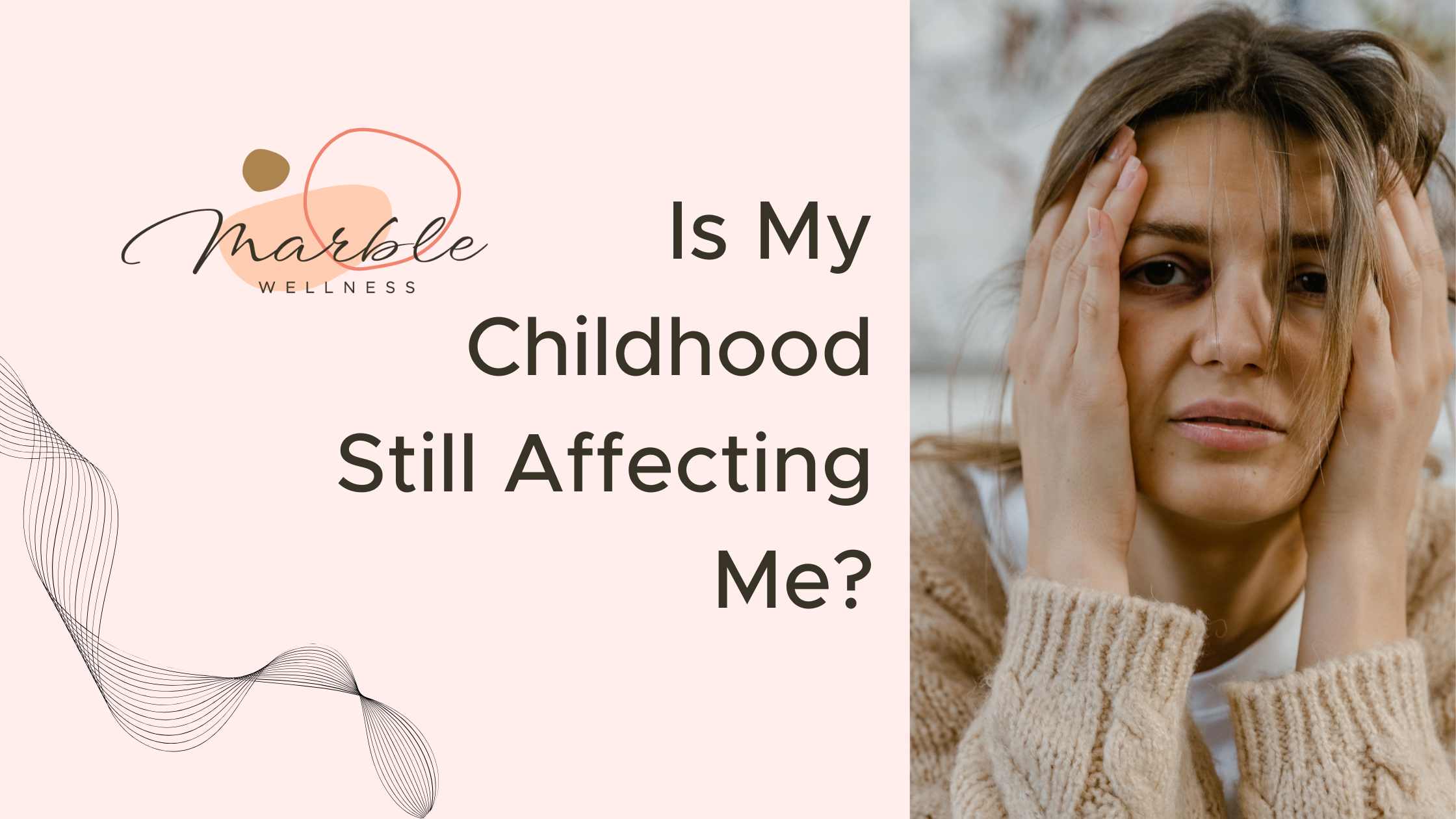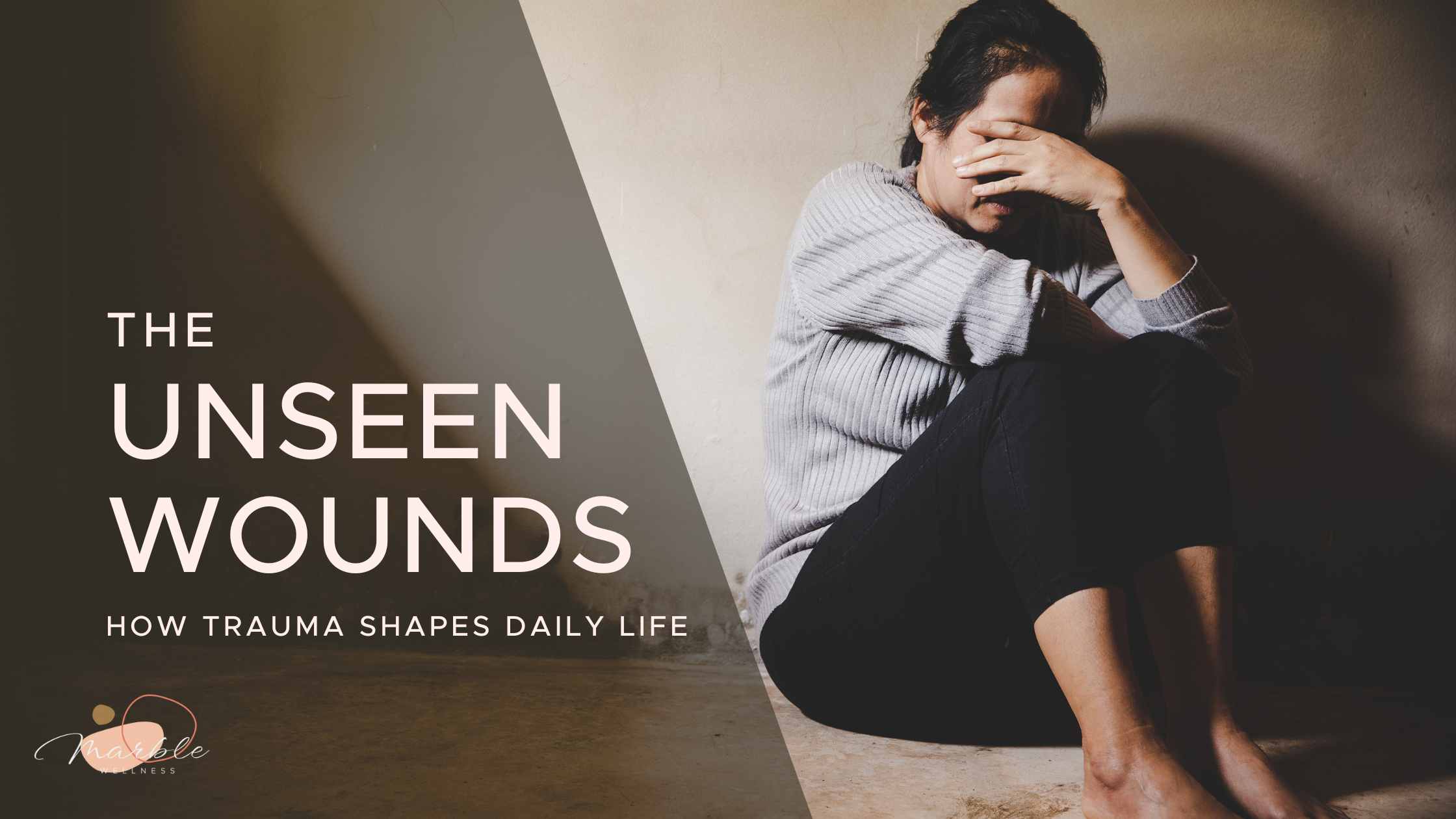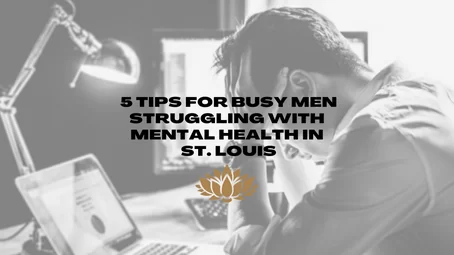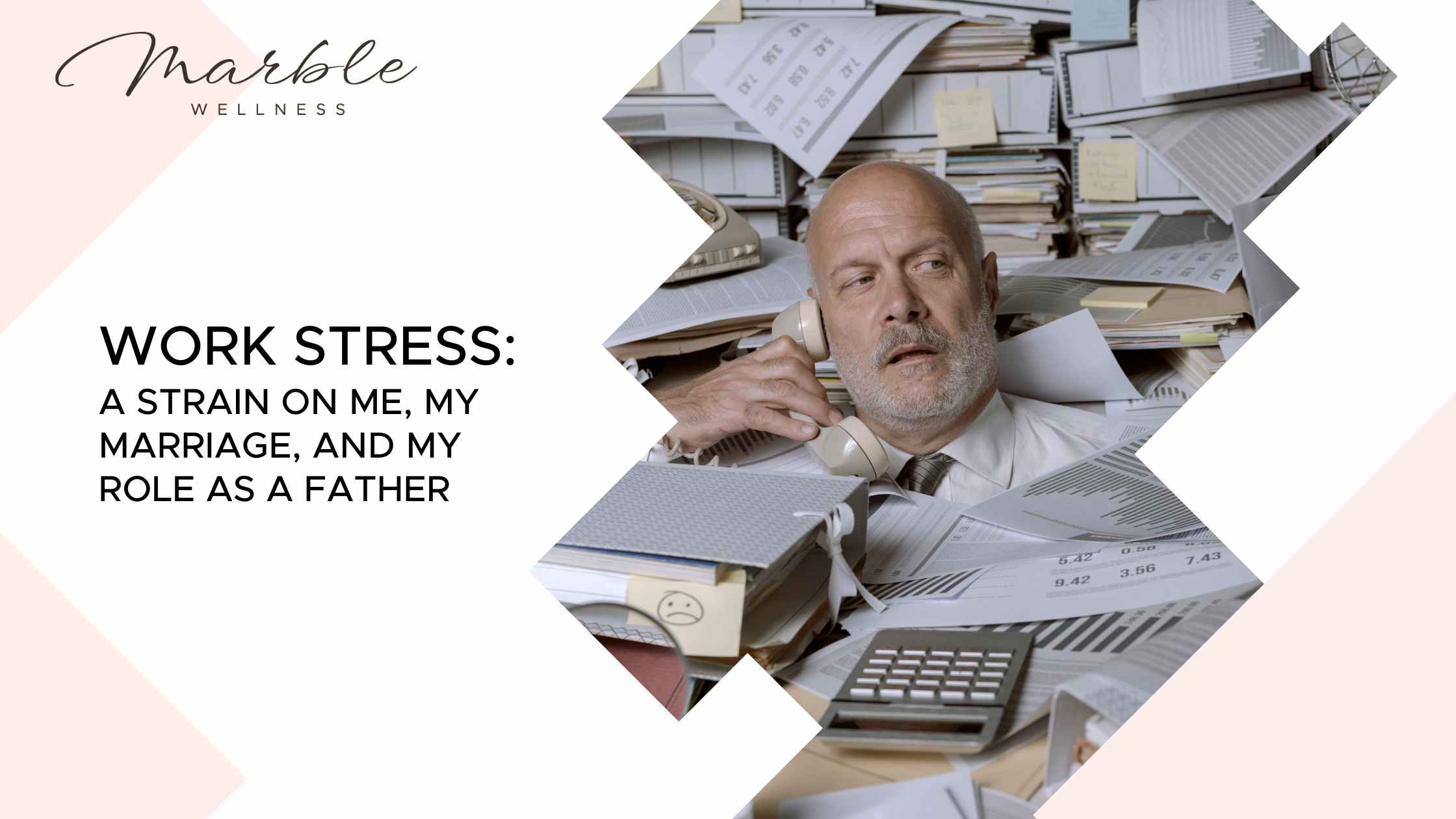You’re a grown-up now.
You’ve got responsibilities, routines, maybe a partner, kids, a career—or all of the above. You’ve learned to show up, to manage, to smile when it counts. You’re not perfect (because who is?), but you’re doing your best.
And still…
Something isn’t quite sitting right.
- You find yourself stuck in patterns you can’t explain.
- You react more intensely than you want to.
- You feel constantly tired, emotionally or physically—or both.
- You have this sense that something deeper is going on… but you’re not sure what.
If that feels familiar, you’re not alone. Many adults find themselves confused by their own reactions, cycles, or emotional blocks—especially when there’s no obvious reason for them in the present.
Sometimes, the clues lie in the past.
Why Childhood Still Matters (Even If Yours Was “Fine”)
One of the most common things I hear from therapy clients is:
“Nothing that bad happened to me. I mean, my childhood wasn’t perfect, but it was fine.”
Let’s start there.
Most of us were raised by people who were doing the best they could—often with limited tools, limited support, and their own unhealed wounds. So yes, maybe you weren’t abused or neglected in the “classic” sense. Maybe you had food on the table, a roof over your head, even a few happy memories to hold onto.
But trauma doesn’t require catastrophe.
It only requires emotional overwhelm without adequate support.
You can grow up in a “nice” house with “good” parents and still:
- Be told to stop crying when you were scared or sad
- Be praised only when you performed or achieved
- Be ignored when you needed comfort
- Be the emotional caretaker in your family system
- Be quietly conditioned to believe that your needs were too much
These kinds of experiences don’t always leave visible scars—but they leave internal ones: distorted beliefs about your worth, your role in relationships, and your right to feel safe.
Signs Your Childhood Wounds Might Still Be Showing Up
Here are some signs I explore with clients who suspect something deeper is playing out under the surface. See what feels familiar—not as a diagnosis, but as a compassionate check-in.
🚩 You feel emotionally responsible for other people’s well-being.
You anticipate everyone’s needs before they ask. You “read the room” before you enter it. You try to keep the peace, even when it costs you something. This likely started young, when your safety or sense of love depended on tuning into others.
“If they’re okay, then I can be okay.”
Except now, you’re always watching, always fixing, always depleted.
🚩 You avoid conflict—or you explode during it.
Arguments feel dangerous. Even small disagreements cause panic or shutdown. Or maybe you swing the other direction—going from fine to furious in seconds, surprising even yourself.
This could be your nervous system reacting to the past, not the present. If conflict at home growing up meant yelling, silence, manipulation, or rejection, your brain now codes it as a threat.
This isn’t immaturity. This is a body remembering what it had to survive.
🚩 You don’t know what your needs are—but you know you feel guilty having them.
You struggle to articulate what you want, what feels good, or what would make your life easier. When you do speak up, you second-guess yourself or over-explain to justify it.
If your emotional needs were dismissed or minimized growing up, you may have internalized the belief that you shouldn’t have any.
“Don’t be a burden” becomes a core operating system—and burnout becomes inevitable.
🚩 You fear abandonment or rejection—even when there’s no sign of it.
You replay conversations to see if you said something wrong. You assume someone’s quiet tone means they’re upset. You feel a drop in your chest when a friend doesn’t text back quickly.
This hypervigilance often stems from early attachment wounds. If connection was unstable, conditional, or hard-won, you might carry that tension into every adult relationship—always bracing for the other shoe to drop.
🚩 You succeed… but still feel like a failure.
From the outside, you’re doing well. You get praise, promotions, and compliments. But you don’t feel successful. You either don’t believe the good feedback or you secretly think that if people really knew you, they’d see how messy you are inside.
This is a hallmark of developmental trauma. You’ve built an external life on a shaky internal foundation—and now it feels like you’re constantly trying to prove you’re okay.
No amount of gold stars can fill a childhood-shaped hole.
“But Doesn’t Everyone Feel This Way?”
Maybe. And maybe not to the same degree.
What matters more is how you feel—and what you want to do with it.
Unhealed childhood trauma doesn’t mean you’re broken.
It means you learned brilliant, adaptive strategies to survive a world that wasn’t always supportive. Those strategies just aren’t helping anymore.
And you don’t have to keep using tools that hurt to hold things together.
What Healing from Childhood Wounds Looks Like
Therapy for childhood wounds is often quiet, slow, and tender work. It’s not about finding someone to blame. It’s about giving space to the parts of you that were silenced, scared, or shaped by what they didn’t get.
It might look like:
- Learning to sit with emotions without shutting them down
- Practicing new boundaries—even when they feel terrifying
- Revisiting old memories with a wiser, more resourced version of yourself
- Reclaiming your story—not by rewriting history, but by adding compassion to the narrative
You don’t have to become someone new. You just have to come home to who you were before you had to protect yourself.
You Deserve the Life You’re Building
If you recognized yourself in even a few of these signs, take heart: This awareness isn’t the beginning of unraveling—it’s the beginning of becoming.
Becoming someone who can feel safe in their own skin…
…someone who can connect with others from a place of authenticity, not fear.
… someone who can finally breathe without scanning the room first.
Your past shaped you, but it doesn’t define you. And you don’t have to carry the weight of it alone.
Start Therapy for Childhood Trauma in the St. Louis Area
If you live in the St. Louis metro area and are ready to improve your mental health, our expert St. Louis therapists are here to help. Not only do we have a team of therapists in Ballwin, MO, but we have also recently expanded to serve the Lake St. Louis and Wentzville area! Reach out to our Client Care Coordinator today to discuss your therapy options, both in-person and via online therapy in Missouri.
Contact Us!
Learn About Our Group Offerings

Additional Counseling Services at Marble Wellness in St. Louis, MO
Marble Wellness Counseling services are designed to help set you on a path of living a more fulfilled, calm, and happy life. Our St. Louis area therapists have a variety of training backgrounds and areas of expertise. We have child and play therapists, therapists for teens, EMDR therapists, men’s mental health experts, couples therapists, and more! We specialize in anxiety, depression, grief, chronic illness, trauma & PTSD, life transitions, and maternal overwhelm. Our practice also specifically helps new moms with various postpartum concerns, moms in the thick of parenting, and moms with teens. We can also chat from wherever you are in the state with online therapy in Missouri. No matter where you are in your journey, we are here to help you thrive!



